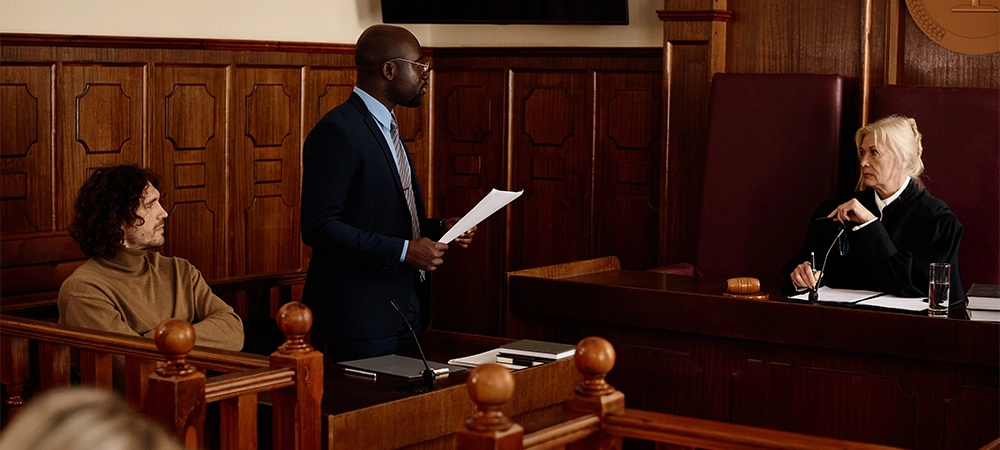Manslaughter is one of the most serious criminal charges in Canada. It is regarded as the unlawful killing of another and carries a maximum sentence of life imprisonment. It differentiates itself from murder as, with manslaughter, there was no intent to kill.
Defending against manslaughter charges is complex as it often rests on what was going through the accused’s mind at the time of the incident. Here we’ll look at the legal strategies that can be employed by the defense for anyone facing such an accusation.
Understanding Manslaughter Under Canadian Law
Generally, manslaughter is either caused in the heat of the moment, through recklessness, or through negligence. Even though there was no intent to kill, punishments can be severe, especially if there are aggravating factors.
However, while the maximum sentence is life imprisonment, there is no minimum sentence. This means that even if found guilty, an effective defence can help to greatly reduce a sentence and, in some cases, avoid jail time at all.
However, the first avenue for a well-prepared defence will be to see how they can beat the charges. There are a few ways this can be done, so let’s take a look.
Related Article: https://www.agpllp.ca/what-is-the-sentencing-for-manslaughter-in-canada/

Defending Against Manslaughter Charges
Defending against manslaughter charges requires a strategic approach. Every case is unique, and experienced homicide lawyers will need to work out the best argument for the accused. Here are the best options:
1. Self-Defense
This is one of the most frequently used defences in manslaughter cases. If the accused acted as a response to an imminent threat, they can argue their actions were required to protect themselves from death or serious injury.
The force used must be proportional to the threat faced. For example, if an unarmed person were to threaten you, it can be hard to justify using a lethal weapon on them. The response to a threat cannot be excessive or unreasonable.
2. Accidental Death
If it is argued by the prosecution the death was caused by recklessness or negligence, the defence can argue the death was merely accidental. Here it can be argued the accused only acted in a way that they thought was reasonable.
An example can be a work accident that was ultimately caused by the accused’s poor training. Or the accused making a minor mistake which was extremely unlikely to lead to a fatality. In these cases, the defence can argue the actions don’t reach the threshold of recklessness or negligence.
3. Intoxication
While only a partial defence, it can be argued the accused was intoxicated to such a degree they were able to form any level of intent. The intoxication would need to be extreme and affect their ability to understand their actions or consequences. This defence is difficult to prove.
4. Mental Disorder
A mental disorder can be a valid defence but it would require a thorough examination by medical professionals. The court must also be convinced the mental disorder made the accused incapable of appreciating the consequences of their actions.
Key Considerations in Manslaughter Cases
A successful defence against manslaughter can depend on several important considerations which go beyond the legal arguments above.
1. The Role of Evidence
In a manslaughter case, there will likely be forensic evidence, witness testimony, and expert opinions. These are usually crucial to establishing whether or not the accused can be held responsible for the death. The defence will need to look for any inconsistencies in this evidence, flaws, or gaps in the prosecution’s case. If they can, this can create reasonable doubt.
2. Mitigating Factors
Mitigating factors are those which lessen the severity of a crime. They aren’t a defence but can lead to a lighter sentence. Examples can include high degrees of provocation, a lower level of recklessness, a lack of criminal history, remorse, and others. Cases with high mitigation will generally have lower sentences.
3. Expert Testimony
Expert testimony can be crucial. This can be especially true if the cause of death is disputed or there are doubts over the negligence/recklessness of the actions. For example, in a construction death, an industry expert may be needed to explain the proper procedure. If there are doubts about the case, getting the right expert witness can make all the difference.
4. Plea Bargaining
In some cases, the defence may want to reach a plea agreement. This usually involves the accused agreeing to plead guilty in exchange for a lesser charge or a reduced sentence. This avoids a full trial and can be the best course of action if the evidence against the accused is overwhelming.

Final Thoughts
Defending against manslaughter charges in Canada can be difficult. However, with a robust legal strategy, a great defence lawyer can give the accused the best possible chance to either beat the charge or receive a much lighter sentence.
Anyone facing manslaughter charges should seek experienced legal counsel. If you need assistance, contact AGP LLP today. We will be happy to offer you a free consultation to sit down and discuss your case.





